Last Harbour - Interview
by John Clarkson
published: 13 / 2 / 2010
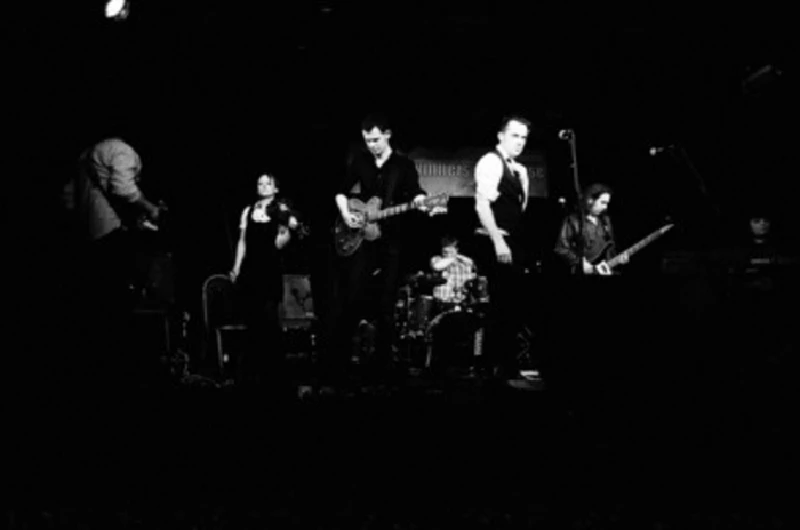
intro
Manchester collective Last Harbour have just released their fourth album, 'Volo'. In what is Pennyblackmusic's third interview with them, John Clarkson speaks to singer Kevin Craig about its unusual recording
Last Harbour have been making records of sweeping turbulence and Gothic melodrama for over a decade. The group, a Manchester-based collective, was formed by Kevin Craig (vocals) and David Armes (guitar, loops) in 1999, and has since expanded to also currently include James Youngjohns (viola, guitar, pedal steel, mandolin), Mike Doward (bass), Gina Murphy (piano, vocals), Sarah Kemp (viola) and Huw McPherson (drums). The band has now released four albums to date, ‘The Host of Wild Creatures’ (2002), ‘Hold Fast,Pioneer (2005) ,’Dead Fires and the Lonely Spark' (2008) and this year’s ‘Volo’ as well as various singles and EPs. Last Harbour have always attempted to do something different with each new recording and ‘Volo’, while having been co-produced like ‘Dead Fires and the Lonely Spark’ with the band by Leeds-based producer and studio owner Richard Formby, is in all other senses a major progression. As befits an album that is named after a child’s Ouija board, Last Harbour have put an emphasis on the unpredictable with ‘Volo’. Although they have always in the past mixed their own records, they have with this record handed over duties for it to Formby. The songs on ‘Volo’ are similarly permutable. At one level elegiac and beautiful, at another rough and discordant, some songs on it surge suddenly upwards to great heights. Although several of the tracks drift slowly to a close, others, however, clap out abruptly. The album is broken up by four monologues in French by native speaker Anne-Laure Franchette. The characters that Craig has portrayed on the other tracks on the albums are almost all obsessed, often fragile in mind and in some cases driven to the point of breakdown and madness by their unfulfilled lusts and desires. ‘Volo’, like ‘Dead Fires and the Lonely Spark’, has been released on Last Harbour’s own Little Red Rabbit Records, which has also put out albums by James Youngjohns’ band Anna Kashfi and Doward’s solo project Crazy Man Michael. With Last Harbour about to go out on tour in April, Pennyblackmusic, in what is our third interview with Last Harbour, spoke to Kevin Craig about ‘Volo’. PB: It was something of a risk handing over the mixing duties to someone else. While you had worked with Richard Formby before, was doing this something that worried you? KC: It did and it didn’t. As we had worked with Richard before, we had seen how he worked in the studio and it was more of a calculated risk than anything else. We knew that he was really good at what he did and that was part of the excitement of it really. PB: What would have happened though if you hadn’t liked it? KC: I don’t know. I guess we would have started again. We knew that what Richard was going to do was, however, going to be interesting and something that we couldn’t do. It was a pretty safe bet in a lot of ways. PB: What do you think then that Richard brought to the recording that the band probably couldn’t have done on its own or hadn’t achieved in the past? KC: It was just nice to have an outsider’s view and a different viewpoint than our own. When you have someone like that to cast an eye and to see a bigger picture, it makes it really exciting. Obviously technically as well and in the studio he is great. PB: It is a recording that is unpredictable in its nature. You are never sure what is going to happen next. How much of that is down to the band and how much of that is down to Richard? KC: The structure of most of the songs was already there. Some of the short songs, such as ‘Chosen Vessels’, for example, which stops quite suddenly, were already in place. We have always liked to have changes in songs and songs that suddenly go into quite loud sections, but I think Richard helped to bring things out a bit there with some of the tracks. On ‘If They’re Right’, for instance, which ends with a big noise section, he helped to bring out a more ambient side to it. There is one song ‘The Weave’ that he made entirely himself out of sections of the previous track, ‘The Loom’. It is instrumental and he just took sections from the previous song as he wanted to kind of build a coda for it. When we heard that that for the first time it was entirely new to us, although it was made up entirely out of parts that we had all played upon. That was really exciting. PB: The album is broken by four different interludes in French. Who is Anne-Laure Franchette who provided those? KC: She is a friend of mine. She is a photographer. Part of the reason why it is named after an Ouija board and part of the reason why we collaborated with Richard was because we wanted to take things that we had done and give them to an outside source. She is from Paris originally but was living in Manchester at the time and so I wrote down a brief kind of story, almost like diary entries from this character and then I asked her to translate them, but not just translate them but to make them sound French. We then recorded her saying them. I don’t speak French so to hear that and to hear words that you have written, but which have been altered and changed by someone else and influenced by an outside force was really good. It added another narrative part to the album. PB: She appears at about twelve or thirteen minute intervals throughout the album. Do you see it as a result as an album of four movements? KC: Yeah. While we have mainly released on CD and have done so again with this album, one of the thoughts behind was to make it like a double vinyl album. It was partly out of that that we got Anne-Laure involved. It was partly also to have another narrative that ran through the songs and through the other narratives from beginning to end as well and to help tie them all together. PB: You rehearsed ‘Dead Fires and Lonely Spark’ for about a year before you recorded it and then you recorded it really quickly with Richard in the space of about ten days. This one was, however, written and recorded piece meal over the space of about eighteen months. How much of it came together in the studio and how much of it came together in rehearsal? KC: There were three or four songs that were finished entirely before we started recording them and which we knew were going to go on the album. There were others which that were written across the course of the recording by us all and then there were one or two that were written in the studio. The main emphasis of this album was to develop a collaborative style of working with the people who were recording us and also with each other. You would do something and then pass the recording along to the next person where they would add something to it. It was a really nice way to work. It was lovely that you could come back to a song and there was something that you didn’t expect on it. It kept it interesting for all of us. PB: It was also recorded in several different places. You didn’t just go off this time to Richard Formby’s studio in Leeds as you did with ‘Dead Fires and the Lonely Spark’. Where was it recorded? KC: Some of it was recorded in the Anna Kashfi studio and James Youngjohns’ home studio. Some of it was recorded at a place called SSR with a guy called James Trott and that was good because he ended up being on the album and doing some backing vocals on it. The drums were recorded in our drummer Huw’s stone floor kitchen in the Derbyshire countryside. There were quite few places. It wasn’t as if the drums and guitars were all recorded in one place or anything like that. We spread it around quite a bit. PB: Last Harbour have now been together a decade and this current line-up has been together for about five or six years now. How do you see your and David’s songwriting as having changed since then and what about the group since ‘Hold Fast, Pioneer’ which was the first album to feature you all? KC: We are probably more ambitious now. The core elements of how we write haven’t, however, really changed at all. I always find it quite difficult to pinpoint when anything was written. I can’t say that there is ever a certain day when a song is begun. They just slowly seep in and that is an element that we have always kept. I think we are now more precise these days though about how we write things and, luckily because of the people that we have in the band now, our ideas are also more realised. PB: When the group recorded ‘Dead Fires and the Lonely Spark’, it was spread out geographically. Is that sill the case? KC: Yes. Gina lives in London and Sarah is in Newcastle. Huw is in Derbyshire. We are really spread out. PB: How do you get around this in terms of rehearsal? KC: With lots of planning (Laughs). We do have a lot of smaller rehearsals with David , James, Mike and I as we’re all based in Manchester. We’ll get together and do bits and pieces and then record them and send them on to the other people in the band which is how a lot of the songs have been written. Quite often we sit around and it just starts with the guitar. PB: How often does the full band actually get together? KC: It tends to be during recordings or on tour. When we listened back to the album for the first time after Richard had mixed it, that was probably the last time that we were all in the same room. It is difficult for us to get together, but also at the same time I think that it brings a lot because we all know how important that it is for us to pitch in and enjoy it. PB: You said about ‘Dead Fires and Lonely Spark’ that the characters on that were affected by something beyond their control and lost in something which they didn’t fully understand. Do you think that is the same with this album? Do you think that they don’t fully understand what is going on here? KC: Yes, but I think that whereas with ‘Dead Fires’ was more about circumstances outside them I like to think that ‘Volo’ is more about inner complexes and inner doubts and not being quite sure of yourself. It is also about feeling that something isn’t quite right. ‘The Fever’, for example, was an attempt to subvert that kind of love song that says that you are very much in love, and is more about the fear that being in love can bring and how it can infect you almost like a virus and create an internal imbalance. PB: As a listener, you often get the general idea of what has happened in your lyrics, but you are also unsure of the exact circumstances and why they have happened. You often just describe the character and the situation they are at that time. There is also often no conclusion to things. Why do you do that? KC: To me when a story doesn’t have an ending or the beginning is blurred it is much more interesting because you can instantly project yourself into what is happening there. I do like stories with a beginning, a middle and an end. At the same time though I tend to keep my stories open-ended because I don’t think that there are usually endings within life. There is a lovely quote by James Ellroy that “closure is bullshit” and I can relate to that. Some things just don’t end and I like that in stories that there isn’t a final deliverance. Sometimes things aren’t neatly wrapped up and that ties in as well with the idea of naming the album after an Ouija board in which sometimes you get these garbled messages that don’t finish and which don’t convey everything that you might wish them to convey. The last line of ‘All of My Triumphs are Written in Your Hand’, one of the tracks on the album, is “But it never ends” and that sums it up too. PB: Your lyrics also seem to be on the borders of reality. What you’re describing is often very real, but at the same time there seems to be a fantastical element as well. You’re dealing with real emotions such as jealousy and a sense of injustice at the world, but at another level they’re Gothic and heightened. Would you agree? KC: Yeah, both the characters and the situations they find themselves in are in larger than life. At the same time I try hard to add details of realism to make them in some way at least believable at least and that the character is really going through this. I partly live in a kind of fantasy-reality world and tend to drift off and daydream a lot. I like the idea of my lyrics having a magical realism. I don’t think that I could write songs about falling in love with a girl down the shops or anything like that (Laughs). It just isn’t really me. PB: Many of the characters on ‘Volo’ seem to have a sense of being persecuted. Do you think that is true? KC: Yeah, definitely, but I think that a lot of it is a kind of self-persecution and that much of it comes out of their insecurities and fear. There is often from the characters’ point of view a perceived persecution, but whether it is really there I guess is entirely up to the listener. On both ‘Chosen Vessels’ or ‘If They’re Right’ the characters believe that something terrible is happening, but whether it is actually occurring isn’t necessarily that important. I was more interested in the idea of what the characters were undergoing. PB: Little Red Rabbit’s first started in 2005, but its first big release was ‘Dead Fires and Lonely Spark’ in 2008. Since then the label has really grown. There have been five other album releases other than ‘Volo’ in the past year. Have you been surprised at how much and how quickly the label had expanded? KC: Yeah, absolutely. We always had a plan for how the label would work out and we were prepared to do a lot of hard work for it. You always hope that it is going to work out. We have always stuck to doing what we wanted to do which is create a package around each release, but it is lovely that it is doing as well as it is and that we are above water and we can release the things that we want. We are really happy with the way it has been going. PB: How does it work? Do you each have different functions in it? KC: Yeah, absolutely. Everyone pitches in and makes decisions about the releases. David Armes, however, is the kind of label manager. He does all the day to day stuff. Mike Doward does all the website stuff and then I do all the visual and design work. Everyone, however, is a sounding board for ideas and we pass things round. PB: The label originally focused on promoting Last Harbour and the acts that are associated with it such as Anna Kashfi and Crazy Man Michael. It has now also expanded to include Fuzzy Lights who come from Cambridge and Kalbakken who are from Scandinavia. What do you look for when you take on a new act? KC: In the case of Fuzzy Lights we saw them play and just loved them and got talking to them. Their first album is one of my favourite records out of all the ones we have done so far. They were looking for a label at the time and the way we worked suited them. It happened in a really kind of organic, natural way. Things developed with Kalbakken in a similar way. PB: Do you see Little Red Rabbit as having an increasingly international focus in the future? KC: We would be really happy to do that. There are great bands around from everywhere. The geography of it doesn’t really matter to us. We also sell records overseas quite a lot. It would be great to have some other bands from abroad on the label. PB: Anna Kashfi’s new album, ‘Survival’, and ‘Volo’are the first two albums already of this year. What will Little Red Rabbit be putting out next? KC: Fuzzy Lights are releasing an EP and an album this summer. In fact I have been working on the artwork for that just today. We are also going to be releasing an Anna Kashfi single. PB: You also make animated films and put some of them on the Last Harbour website to accompany the last album. Will you be doing the same with this album? KC: Yes, but this time in it won’t be just me as it was on the last album. Again we wanted to work in a collaborative way on this and what we have done is to give the tracks to a bunch of filmmakers and have them make films of them. The filmmakers range from film students to semi-professionals. I am making one or two as well and some of the other bands members are also. We did a fairly big production on a video to ‘The Fever’. We worked with another filmmaker there and got to film in a big TV studio which was terrifying. They should all be going on-line soon. PB: You are going to be touring in early April. What is going to happen after that? KC: We are hopefully going to do some festivals this summer. We are just looking at that now, although we will hopefully not be playing in the sunshine (Laughs). We went over to Italy and played some gigs over there not so long ago and we hope to go back to Europe in the Autumn time. PB: Thank you.
Picture Gallery:-
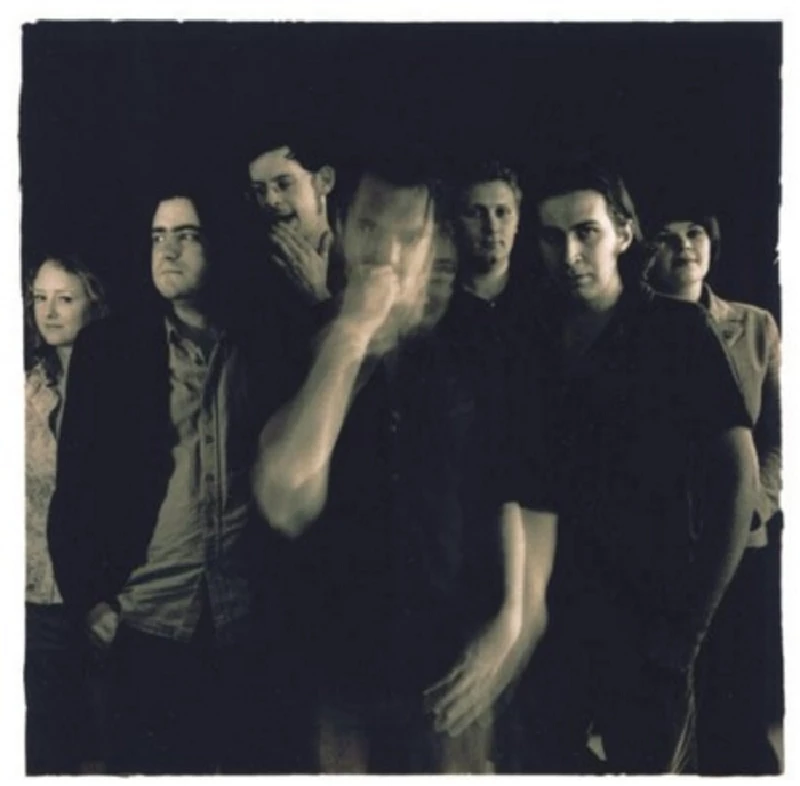
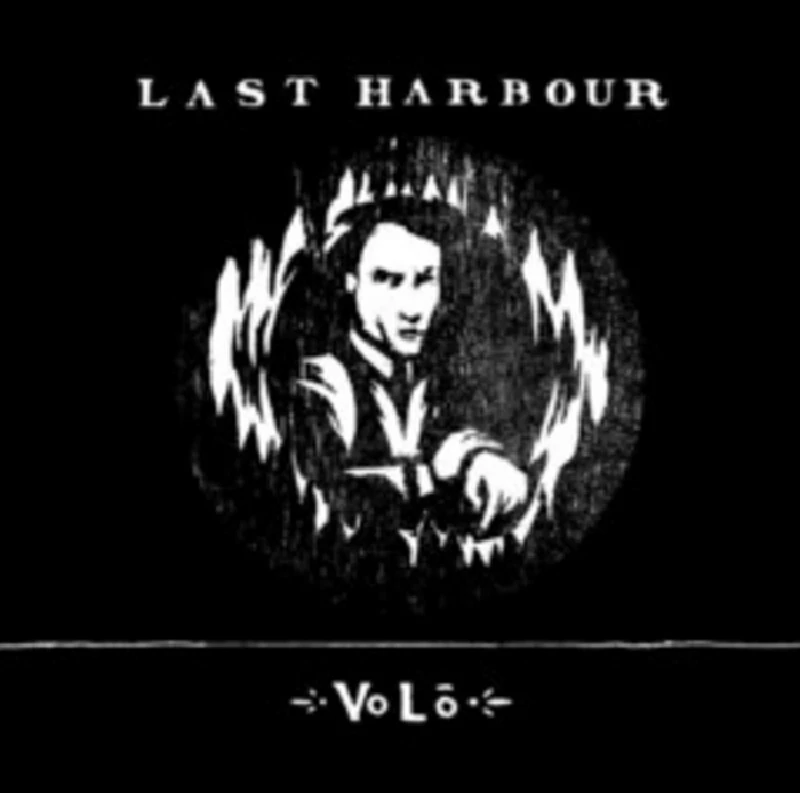
interviews |
|
Interview (2012) |
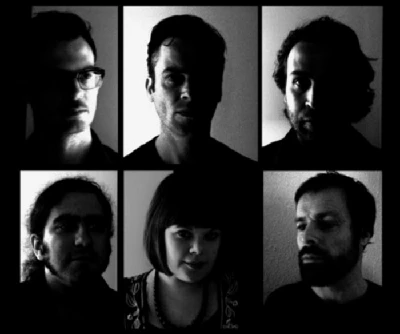
|
| In our fourth interview with them, John Clarkson talks to Kev Craig, the front man with Manchester alternative rock collective Last Harbour, who will be playing our next Pennyblackmusic Bands' Night', about their new album, 'Your Heart, It Carries the Sound', which was recorded in a church |
| Interview (2008) |
| Interview (2002) |
reviews |
|
Volo (2010) |
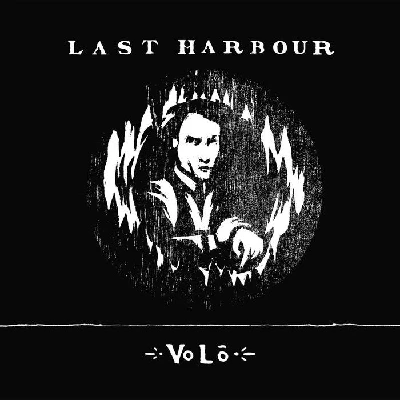
|
| Unpredictable and haunting fourth album from Manchester-based alt. rockers, Last Harbour |
| Saint Luminous Bride (2009) |
| My Knowen Foe EP (2008) |
| Dead Fires and the Lonely Spark (2008) |
| Hold Fast, Pioneer (2005) |
| Host Of Wild Creatures (2002) |
most viewed articles
current edition
Carl Ewens - David Bowie 1964 to 1982 On Track: Every Album, Every SongBathers - Photoscapes 1
Armory Show - Interview with Richard Jobson
Colin Blunstone - Thalia Hall, Chicago, 16/7/2025
John McKay - Interview
Visor Fest - Valencia, Spain, 26/9/2025...27/9/2025
Billie Eilish - O2 Arena, London, 10/7/2025
Bathers - Photoscapes 2
Editorial - July 2025
Sir Tim Rice - Interview
previous editions
Heavenly - P.U.N.K. Girl EPOasis - Oasis, Earl's Court, London, 1995
Trudie Myerscough-Harris - Interview
Pixies - Ten Songs That Made Me Love...
Simon Heavisides - Destiny Stopped Screaming: The Life and Times of Adrian Borland
Beautiful South - Ten Songs That Made Me Love...
Prolapse - Interview
Blues and Gospel Train - Manchester, 7th May 1964
Boomtown Rats - Ten Songs That Made Me Love....
Fall - Hex Enduction Hour
most viewed reviews
current edition
Amy Macdonald - Is This What You've Been Waiting For?Sick Man of Europe - The Sick Man of Europe
Alice Cooper - The Revenge of Alice Cooper
Phew, Erika Kobayashi,, Dieter Moebius - Radium Girls
Lucy Spraggan - Other Sides of the Moon
Blueboy - 2
Cynthia Erivo - I Forgive You
Davey Woodward - Mumbo in the Jumbo
Lapsley - I'm a Hurricane, I'm a Woman In Love
Philip Jeays - Victoria
Pennyblackmusic Regular Contributors
Adrian Janes
Amanda J. Window
Andrew Twambley
Anthony Dhanendran
Benjamin Howarth
Cila Warncke
Daniel Cressey
Darren Aston
Dastardly
Dave Goodwin
Denzil Watson
Dominic B. Simpson
Eoghan Lyng
Fiona Hutchings
Harry Sherriff
Helen Tipping
Jamie Rowland
John Clarkson
Julie Cruickshank
Kimberly Bright
Lisa Torem
Maarten Schiethart